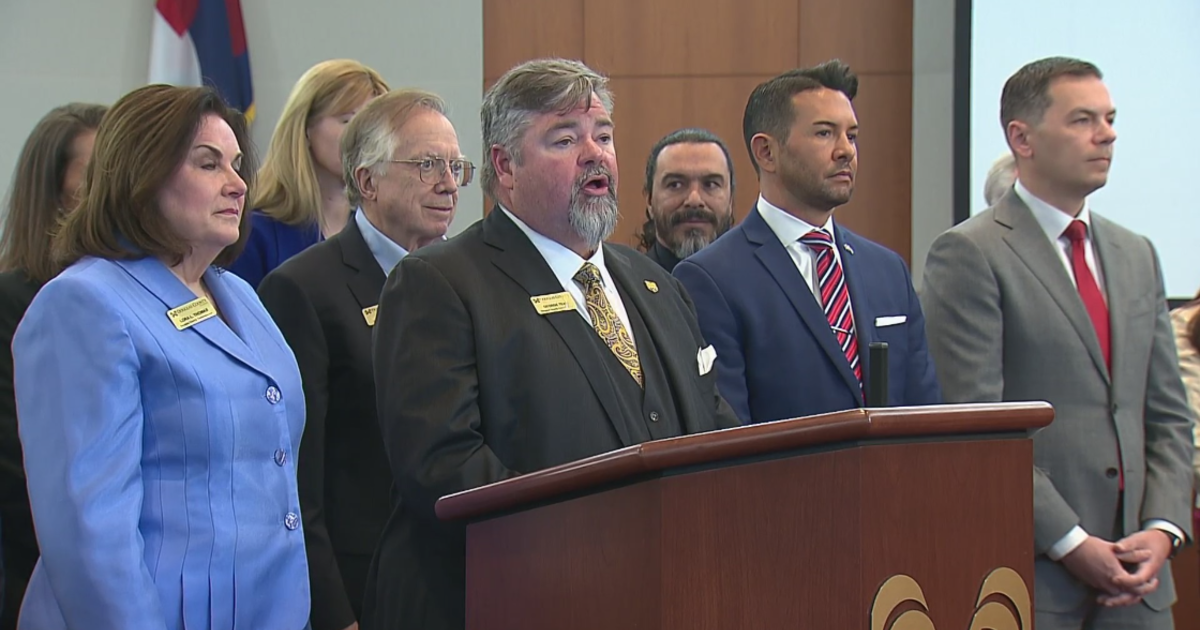Low-Cost Health Insurer In Colorado Faces Uncertain Future
DENVER (AP) — Colorado's biggest nonprofit health insurer faces an uncertain future, and its 80,000 or so customers don't know whether their insurer will be able to offer new polices when next year's enrollment period begins soon.
Colorado HealthOP, which emerged from the Affordable Care Act, faces possible insolvency because the U.S. government said it won't be able to cover payments to help stabilize premiums in federal insurance markets.
The U.S. Department of Health and Human Services said last month that it could pay only about 13 percent of a fund set up for health insurers — money promised to cover the cost of sicker-than-anticipated customers nationwide.
The announcement has jolted insurance cooperatives like Colorado HealthOP, which offered some of Colorado's cheapest coverage plans but also relied on federal funds for its first few years.
So far, the cooperative has borrowed $72.3 million and says it needs more until it can operate without help. The co-op reported a net loss of $23 million last year.
"We really are counting on that money," Colorado HealthOP CEO Julia Hutchins said.
State regulators will tell Colorado HealthOP in the next two weeks whether it will be allowed to offer insurance plans for 2016. Open enrollment starts in about three weeks.
That's putting customers like Mark and Ilene Reinhart of Centennial in a bind.
The Reinharts — both part-time workers with no employer health insurance — have been with Colorado HealthOP since it launched last year. They say there should be a national outcry over the federal government failing to honor payments to insurers.
"Over the last couple years, they've done their part with the federal government," Mark Reinhart said of Colorado HealthOP. "If they've done their part — the government really needs to step up somehow."
But experts say that's unlikely to happen. Technically, the health care law obligates the government to pay insurers for their claims. But the legislation did not clearly specify how that would happen.
The Republican-led Congress is unlikely to allocate any additional money for the program, a temporary stabilization fund that lasts three years. Of the original 23 health insurance co-ops created by the federal law, four have collapsed — Iowa/Nebraska, Louisiana, Nevada and New York.
Colorado HealthOP insists that it has a plan to survive and that federal authorities will change course and make the payments. But critics of the health law say a federal about-face is unlikely and that low-cost insurance cooperatives relying on government support shouldn't be in business.
Four days after the government announced the slashed insurance payments, Republican U.S. Sen. Cory Gardner wrote to Colorado HealthOP asking about its plan to survive. Gardner said the cooperative's records show that its finances are in some ways more precarious than the co-ops that have already closed. He said taxpayers won't recover those loans.
"What is the estimated ability of Colorado HealthOP to repay its loans?" Gardner asked in an Oct. 28 letter. He hasn't yet received a reply.
Hutchins told The Associated Press that the federal payments should not be seen as handouts but as a necessary short-term investment to help nonprofit co-ops get established.
"This is really to help stabilize the market, help keep prices low as we make the transition," Hutchins said of the payments. "Right now we're fighting like hell to make Congress make good on its obligations. We're confident we will prevail."
With just three weeks until the start of open enrollment, the window is closing for customers like the Reinharts to keep insurance through Colorado HealthOP.
"It offers great coverage for people like us," said Ilene Reinhart, who has written to Congress seeking additional money for the fund keeping Colorado HealthOP afloat. "We're looking at continuing it until we can't any further."
By Kristen Wyatt, AP Writer
(© Copyright 2015 The Associated Press. All Rights Reserved. This material may not be published, broadcast, rewritten or redistributed.)



